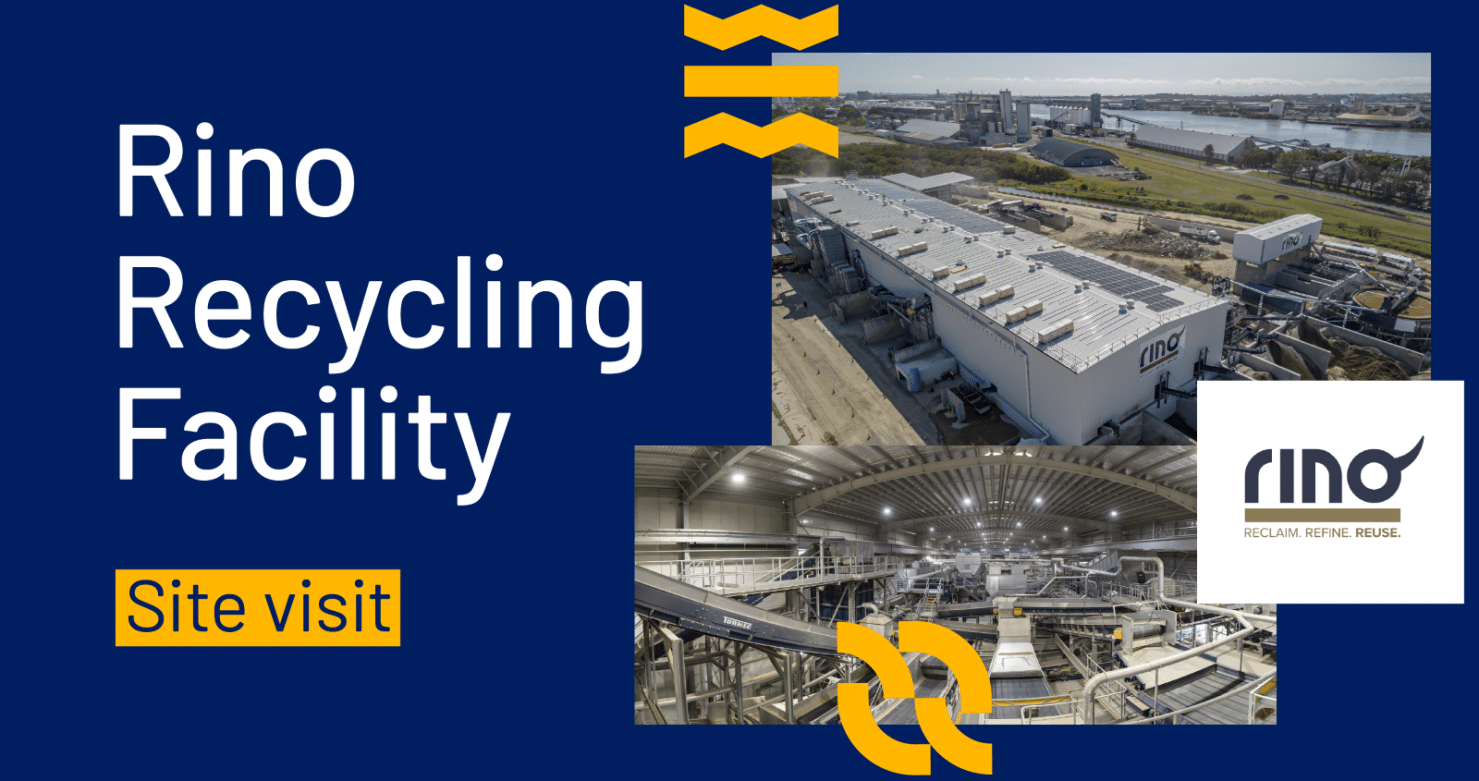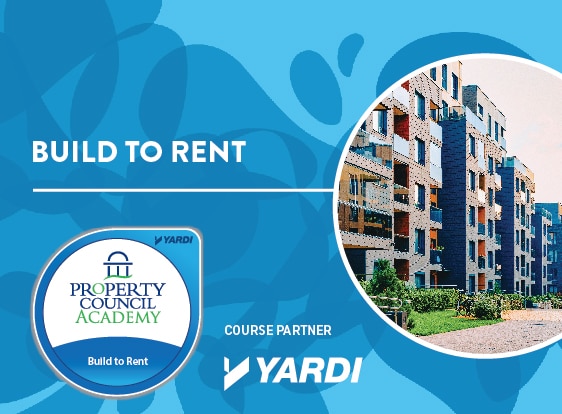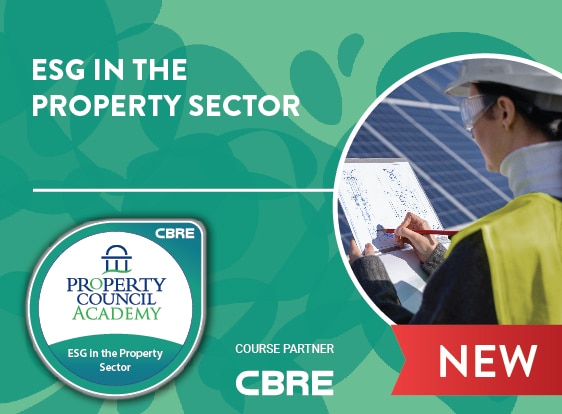The success of Australia’s property industry, both now and in the future, depends upon its ability to operate in line with investor and community expectations on environmental, social and governance (ESG) performance. Australian property companies’ sustainability credentials are recognised as globally leading, and the industry’s expertise and leading practice is well known around the world.
Our members have a long-term stake in ensuring our capital and regional cities thrive and want to see decisive action on climate mitigation and adaptation to avoid the worst projected impacts of climate change. Within Australia’s business community, the property industry is a leader in the race to drastically reduce emissions with many of our members committed to ambitious goals to reach net zero emissions by 2030 or sooner. Our industry is also leading the charge on megatrends like electrification and phasing out fossil fuel use in buildings, tackling embodied carbon and working towards nature positive strategies to improve biodiversity outcomes.
The Australian property industry has also shown global leadership on social sustainability initiatives, including gender diversity through the Property Champions of Change, the establishment of world first industry-wide online platforms to tackle modern slavery risks in supply chains and measure the collective social impact of the sector.
The property sector has a long history of collaboration to develop standards, improve industry practices and drive ESG performance, and this focus is becoming increasingly important for our members, communities, stakeholders and governments. As agents of change and positive impact, promoting the best ESG outcomes is core to our mission.
As the industry’s voice, we are actively working with members and leadership forums like our National Sustainability Roundtable to enhance and promote diversity, encourage sustainability, strong governance and a positive social impact wherever and however we can. Our key strategic priorities across ESG are:
- Energy, emissions and climate
- Social sustainability, including human rights and Modern Slavery
- Resilience
- Circular economy
- Reporting frameworks and disclosures.
Every Building Counts
Launched with the Assistant Minister for Climate Change and Energy Senator The Hon. Jenny McAllister, Every Building Counts is a new joint report by the Property Council of Australia and the Green Building Council of Australia.
Buildings account for over 50% of electricity use in Australia and almost a quarter of its emissions. The built environment has the technology to decarbonise now, but we must do this at speed and scale to smooth the way for other hard-to-abate sectors and achieve Australia’s legislated emission reduction targets.
Governments must implement policies and programs that provide certainty to industry and drive the transition to zero-carbon-ready homes and buildings. Across eight policy themes, Every Building Counts sets out policy recommendations which provide a roadmap for governments towards a greener, healthier, more equitable built environment.
Modern Slavery in Supply Chains
We began working to help end modern slavery in property operations and supply chains with 15 of our largest members in 2018, launching a global first industry-wide Supplier Platform and education resources with expert input from modern slavery, human rights and supply chain specialists. We continue to work with our members and stakeholders on this urgent human rights matter through our Human Rights and Modern Slavery working group, which has grown in scope and membership.
There are 49.6 million people living in conditions of modern slavery, according to the Global Slavery Index, of whom 59 per cent are estimated to be across the Asia Pacific region.
The Commonwealth Modern Slavery Act, which came into force on 1 January 2019, requires companies with annual revenues of more than $100 million to report annually on the risks of modern slavery in their operations and supply chains, and to demonstrate the actions they are taking to address those risks.
Working with our Human Rights and Modern Slavery working group, we’ve developed useful resources for the property industry to assist their understanding and ability address modern slavery risks in property operations and supply chains. These include:
- Pathway to Respecting Human Rights and Addressing Modern Slavery Risks, across ten clear steps, this pathway is designed to give property and construction businesses and their suppliers practical and actionable steps for respecting human rights and tackling modern slavery, no matter the size of business or level of experience.
- Guidance to improve Modern Slavery statements in the property sector, including 11 clear recommendations following detailed advice from five modern slavery, human rights and supply chain experts
- Listening and Responding to Modern Slavery in Property and Construction, a practical guide for effective human rights grievance mechanisms, developed in partnership with KPMG
- Remediating Modern Slavery in Property and Construction, a practical guide for effective Human Rights remediation, developed I partnership with KPMG.
Our Supplier Platform, delivered in collaboration with leading property companies, Informed 365 and industry experts, asks property suppliers about the actions they are taking to assess and address human rights and modern slavery risks across shared operations and supply chains. In operation since 2018, the platform has engaged over 10,000 suppliers.
Collective Social Impact Framework
The property industry shapes the places in which Australians live and work. It also is home to Australia’s largest workforce and has far-reaching and elaborate supply chains. Given the scale of its impact, socially, economically and environmentally, the property industry is in a unique position to improve people’s lives.
The Property Council and our members are determined to lead the conversation about delivering positive change through social sustainability in Australia’s property industry.
For this reason, the Property Council’s National Social Sustainability Roundtable spearheaded the establishment of a Collective Social Impact Framework as a way to assess and quantify these efforts across the sector.
The successful completion of the pilot phase of the Framework means that it is now ready for its substantial release. The Framework enables voluntary reporting on actions and initiatives underway by member organisations. Members can leverage their current efforts by reporting against the Framework which has been mapped against, and aligned to, existing industry standards.
Data gathered from the Framework will also deliver consolidated industry insights on the range of social initiatives across the Australian property sector for benchmarking and advocacy. The Property Council intends to make this information available in a de-identified way following the completion of the reporting phase.
Access resources and start reporting below.
Upcoming Events
View events related to environmental, social and governance.
Our Industry Committees
We have a National Sustainability Roundtable, Social Sustainability Roundtable, and sustainability Committees in the Australian Capital Territory, New South Wales and Victorian Divisions.
Our sustainability Committees are focused on driving the ESG advocacy agenda. As the industry’s voice, we are actively working with members through these Committees to enhance and promote diversity, encourage sustainability, strong governance and a positive social impact wherever and however we can. Our key strategic priorities across ESG are:
- Energy, emissions and climate
- Social sustainability, including human rights and Modern Slavery
- Resilience
- Circular economy
- Reporting frameworks and disclosures.
Committees meet every four to six weeks to discuss issues and projects relevant to their expertise and the focus of the Committee. Being selected as a member of a Property Council Committee gives you the opportunity to help shape the future and influence the organisation’s advocacy agenda. Members have the opportunity to contribute to important, focused industry discussions while building their professional networks and knowledge.
As part of our 40-40-20 commitment to gender equity, all our Committees comprise a minimum of 40 per cent female representatives. Committee members are appointed for a two-year term, with the current Committees commencing their tenure in February 2023.
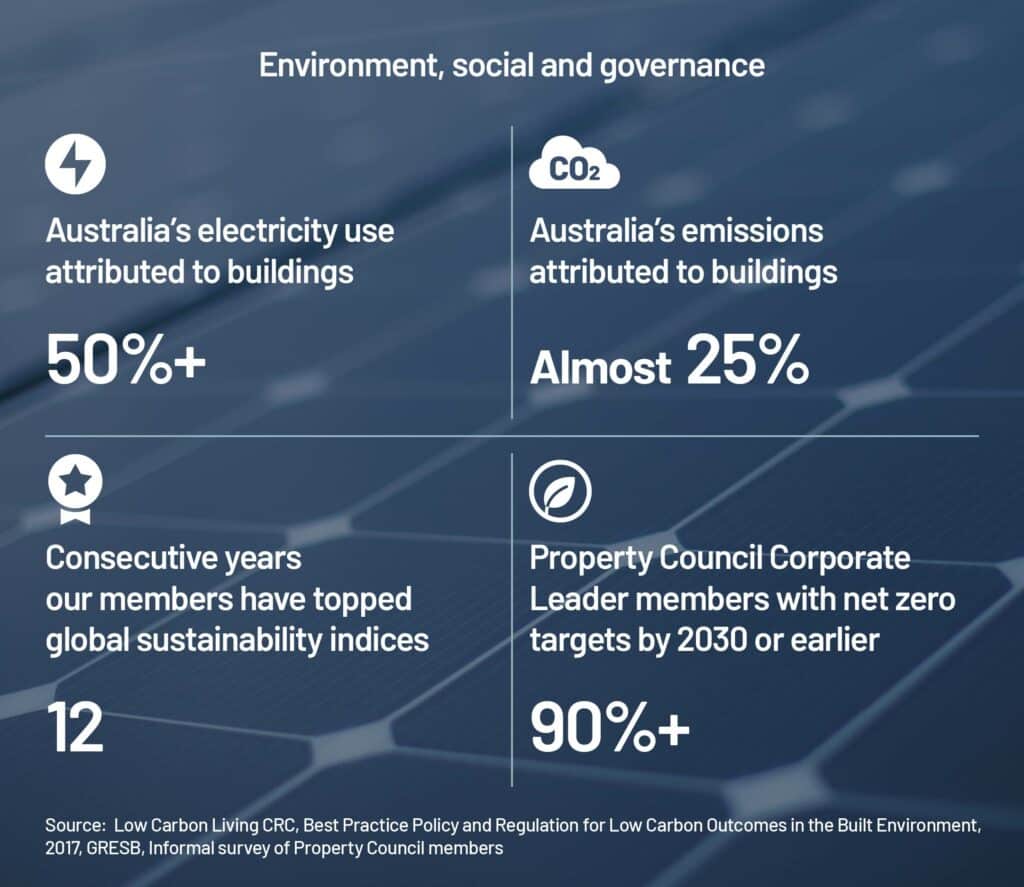
Research
The Property Council’s research team produces a suite of industry data directly related to environmental, social and governance.

Shopping Centre Directory: VIC/TAS 2023
The Property Council’s Shopping Centre Directories provide a comprehensive listing of shopping centres within each state. They contain details on centre ownership, size, management, tenancy mix, site area, number

Shopping Centre Directory: WA 2023
The Property Council’s Shopping Centre Directories provide a comprehensive listing of shopping centres within each state. They contain details on centre ownership, size, management, tenancy mix, site area, number

Shopping Centre Directory: NT 2023
The Property Council’s Shopping Centre Directories provide a comprehensive listing of shopping centres within each state. They contain details on centre ownership, size, management, tenancy mix, site area, number
Campaigns & Submissions
View campaigns and submissions related to environmental, social and governance.
Prosperity Through Property: A roadmap to unleashing Western Australia’s potential
West Australians will confront unprecedented economic and social circumstances as they head to the polls for the 2025 state election.
Human Rights and Modern Slavery
The Property Council of Australia, in partnership with Edge Impact, has launched a ground-breaking new resource the ‘Pathway to Respecting Human Rights and Addressing Modern Slavery Risks’.
Property Council Submission to the Exposure Draft ED SR1 Australian Sustainability Reporting Standards – Disclosure of Climate-related Financial Information
The Property Council of Australia welcomes the opportunity to provide comments on Exposure Draft ED SR1 Australian Sustainability Reporting Standards – Disclosure of Climate-related Financial Information that to proposes climate-related financial disclosure requirements based on the ISSB’s IFSR S1 and S2.
Upcoming Academy courses
Comprising workshops, online learning and industry diploma courses, our Academy provides the resources to enhance the professional lives of our members. It's a professional development platform with something for everyone.
Latest news
View news related to environmental, social and governance.

The rise of the net zero tenant
As more and more tenants adopt net zero goals, emissions relating to their leases are more important. So, what are the steps to becoming a net zero tenant?
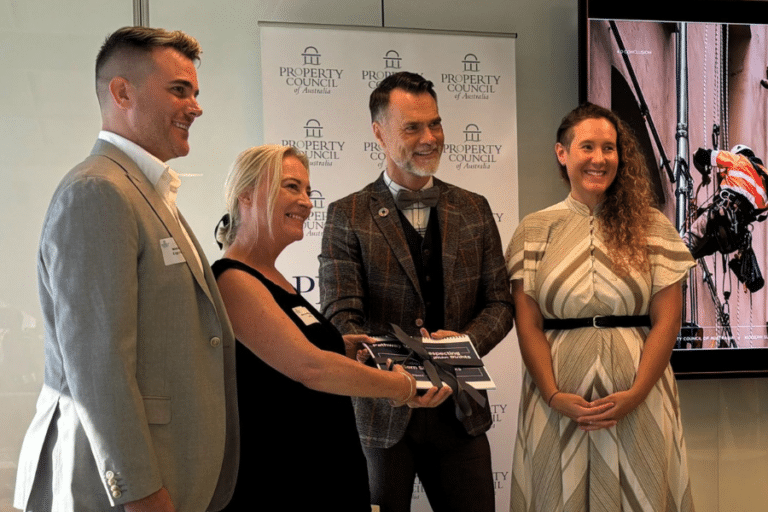
New pathway to help property industry address modern slavery risk
The report from the Property Council and Edge Impact gives the industry steps to respect human rights and tackle modern slavery.

Office upgrades can save big on embodied carbon: report
Almost half a tonne of upfront embodied carbon can be saved for every square metre retained from an existing commercial office, when compared to an equivalent new-build project, according to Slattery.
Awards
For almost 40 years, the Property Council of Australia has hosted the industry’s most prestigious awards. As champions of our industry we celebrate and reward excellence. Winning a Property Council award means truly being at the top of your game.
Innovation & Excellence Awards
The annual Property Council of Australia/Rider Levett Bucknall Innovation & Excellence Awards are the most prominent property awards in Australia, promoting excellence in design and innovation in the built environment since 1982.
National Retirement Living Awards
The Property Council’s National Retirement Living Awards celebrate excellence and achievement across all parts of the retirement living sector.

